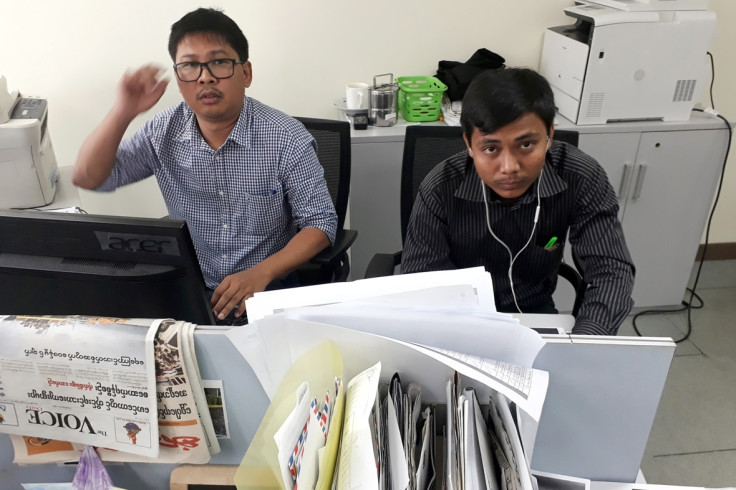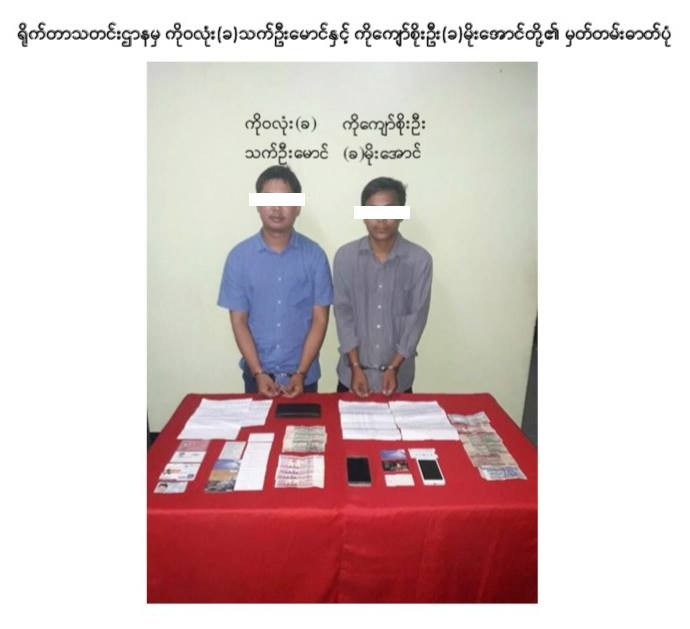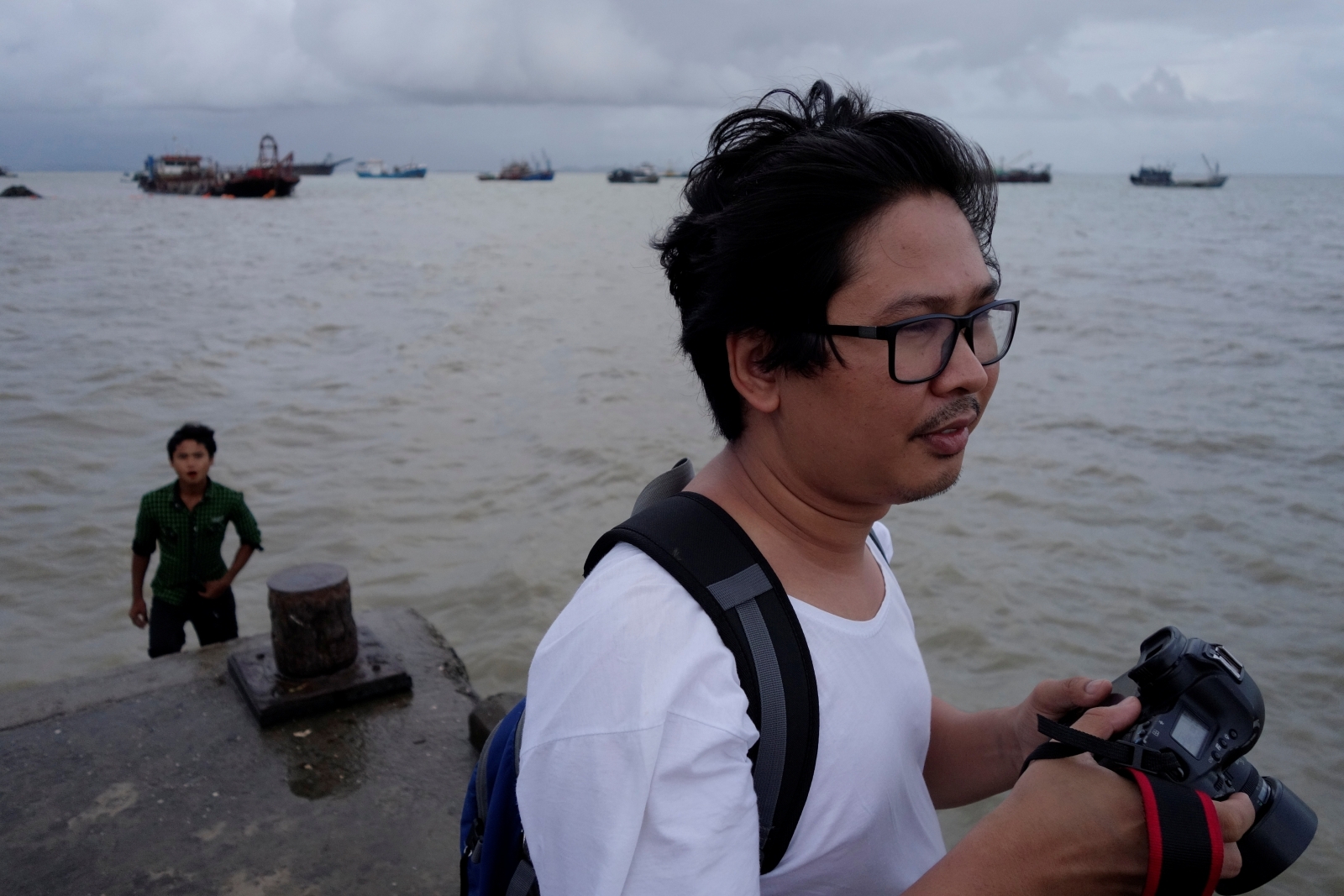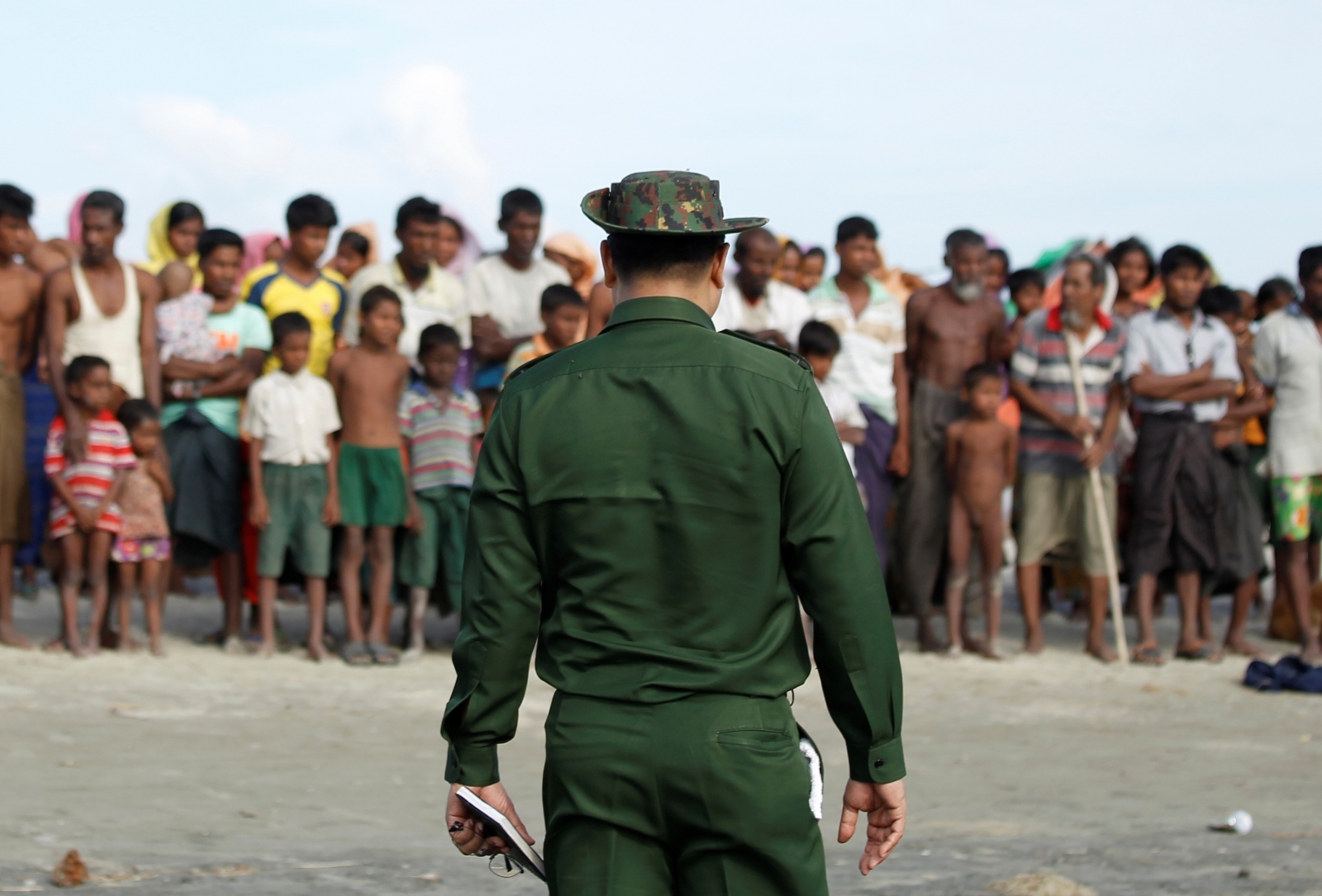Reuters demands Myanmar release two journalists arrested for possessing 'important secret papers'
The reporters had been working on stories about Myanmar's military crackdown on the Rohingya Muslim minority.
Reuters news agency has demanded that Myanmar immediately release two of its journalists who were arrested for possessing "important secret papers" obtained from police officers who had worked in Rakhine state. The reporters had been working on stories about the military crackdown on the Rohingya Muslim minority that has caused almost 650,000 people to flee to Bangladesh.

Myanmar's Ministry of Information said in a statement on its Facebook page that the journalists and two policemen face charges under the colonial-era Official Secrets Act, which carries a maximum prison sentence of 14 years.
Reuters said Wa Lone and Kyaw Soe Oo had been missing since late Tuesday night. "Reuters reporters Wa Lone and Kyaw Soe Oo have been reporting on events of global importance in Myanmar, and we learned today that they have been arrested in connection with their work," Stephen J Adler, president and editor In chief of Reuters, said in a statement. "We are outraged by this blatant attack on press freedom. We call for authorities to release them immediately," he said.
The ministry posted a photo of the two journalists in handcuffs, standing behind a table bearing documents, mobile phones and currency. It said they had collected "information and important secret papers related to the security forces" from the policemen, who had worked in Rakhine but were now in Yangon.

"When we saw that photo of them, it broke our hearts that their picture was taken like they're criminals," said War Lay, a sister of Kyaw Soe Oo. "He was just doing his job as a journalist and we hope that they will be released soon."
Wa Lone, who joined Reuters in July 2016, has covered a range of stories, including the flight of Rohingya refugees from Rakhine state. This year he jointly won an honourable mention from the Society of Publishers in Asia for Reuters coverage of the Rakhine crisis in 2016.




Kyaw Soe Oo, an ethnic Rakhine Buddhist from state capital Sittwe, has worked with Reuters since September. He has covered the impact of the 25 August attacks on police and army posts in the northern Rakhine state, and reported from the central part of the state where local Buddhists have been enforcing segregation between Rohingya and Rakhine communities.
Rakhine state is the epicentre of the Myanmar military's brutal security operation against Rohingya Muslims. The campaign, launched in August in response to attacks on police outposts, has been condemned by the United Nations as "ethnic cleansing" and those fleeing have described widespread rights abuses by security forces. The military, which is charge of security in northern Rakhine, and the civilian government have barred most journalists and international observers from independently traveling to the region.
Shawn Crispin, a senior representative for the Committee to Protect Journalists, also called on Myanmar authorities to "to immediately, unconditionally release" the journalists. "These arrests come amid a widening crackdown which is having a grave impact on the ability of journalists to cover a story of vital global importance," he said.
The Foreign Correspondents Club of Myanmar said it was "deeply shocked" with news of the arrests and "gravely concerned with the state of press freedom in Myanmar as the journalists were detained while carrying out their journalistic work." It also called on authorities to allow their families to meet them as soon as possible.
The US Embassy said it was "deeply concerned by the highly irregular arrests of two Reuters reporters." "For a democracy to succeed, journalists need to be able to do their jobs freely," it said in a statement. "We urge the government to explain these arrests and allow immediate access to the journalists."
Journalists in Myanmar are facing renewed harassment, with several arrested in recent months. Two foreign journalists along with two of their Myanmar associates are currently awaiting trial on new charges after already being sentenced to jail for illegally flying a drone over parliament. "Media freedom in the country is getting worse and arresting journalists is more and more common these days, and this shows that the authorities are clearly ignoring media laws," said Robert Sann Aung, a human rights lawyer.
"I have been arrest" were the four words that Wa Lone texted to Reuters Myanmar Bureau Chief Antoni Slodkowski on Tuesday evening to let him know what was happening. Very soon after that Wa Lone's phone appeared to have been switched off. Over the next 24 hours, Reuters colleagues in Yangon filed a missing persons report, went to three police stations, and asked a series of government officials what had happened to the two reporters. They got no official information until Wednesday evening.




















